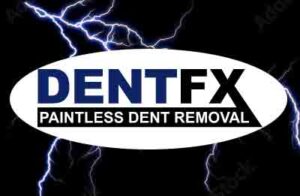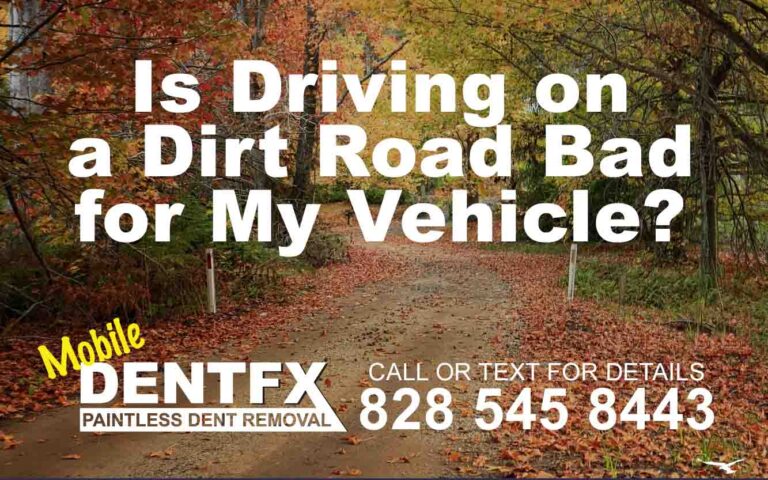Maybe you live off the beaten path. You enjoy some solitude and that means not everything is paved. Or maybe there’s a get-away you love that offers this or you just like to explore. In any case, you may be driving your vehicle on dirt roads frequently. Maybe you even do some off-roading! How bad are dirt roads for a vehicle? Will they wear things down or require more maintenance?
What You Can Expect From Driving on Dirt Roads Frequently
Everyday Damage
Let’s talk about regular wear and tear first. Many dirt roads are well-packed and even. They’re almost as good as paved roads. The quality of a dirt road determines the damage your vehicle might take. A dirt road that’s not wide enough means running the tires on one side through the brush. A dirt road that isn’t well kept is filled with ruts, stones, and lumpy speed bumps.
Soil acts as an abrasive, so dry, dusty roads can wear down your braking system and suspension. Gravel can get caught in anything mechanical, creating a more immediate problem. Paint is more likely to wear faster. Very dusty roads can also decrease visibility, and rain and wind can create dangerous inconsistencies in the road faster. These can both increase your risk of getting in an accident.
Mud and Water
Water that sits on a road is runoff. Runoff can be rainwater, or it can pick up chemicals, pesticides, and other nasty ingredients. These can corrode metal and paint quite quickly. Runoff can also erode chunks of dirt roads quite quickly, posing an often-unseen danger:
If the road was whole yesterday, but a hard rain and constant runoff have worn a large rut into it, you just see the water on the top of the road. You assume the structure is the same underneath, and that you’ll drive through a shallow puddle. Instead, the rut is deep and part of the road has washed away, causing your car to dip into that rut. That results in an accident and can be dangerous to you and damaging to your car.
Repair Needs
You can easily see how dirt roads create both regular maintenance issues through wear and tear and increase the risk of more severe damage. For maintenance, keep to your regular maintenance checks. If driving on dirt roads regularly, don’t skip or delay one. You may even want to accelerate your maintenance checks by a few weeks each to keep on top of any potential issues before they become more expensive damage.
For major damage issues, you obviously know that it means repair work. There’s no way around this, but there is a way of avoiding it. Just keep an eye on the road’s conditions, and practice extra care driving after major weather events.
Body and paint damage may occur from the dust, gravel, stones, and grit, not to mention mud and water corroding the metal and paint. Rely on a dent repair shop to handle these quickly and maintain the beautiful look of your vehicle.
Ground Clearance
What about roads that are wilder or that include off-road portions? A lot of damage is caused by drivers taking vehicles off-road that were never meant to handle those conditions. Ground clearance is often a major problem here. Even vehicles designed for off-road adventuring won’t be able to handle rocks that are too large or surfaces that are too uneven.
Remember that a vehicle is rigid. It can’t bend around large rocks or float over sharp rises. Such obstructions can easily result in your vehicle becoming stuck, or vehicle “gutting” its undercarriage as it drives by at speed. This can also result in crashes and hard stops that can cause injury. Beyond this, trying to free the vehicle without professional help can also result in injury or additional damage to the vehicle.
True Off-Road Needs
You’ll want to make sure your ground clearance and your tires will be able to handle any dirt roads and off-road paths you plan to be driving on. Skid plates can help protect the vehicle’s underside. This is especially important for the gas tank. Your vehicle should have low-end torque to provide power at low speeds. The rear-locking differential allows a vehicle to spin both of those wheels at once.
Keep tow hooks, recovery shackles, and nylon tow rope on hand to help free your vehicle if it gets stuck. Don’t be too stubborn about asking for help, and it’s a good idea to have a AAA membership. It’s exceptionally inexpensive for the services and helps you can get if you become stuck or stranded.
If you get a ding, dent, scratch, or scrape while navigating our back roads, don’t hesitate to contact Dent FX for fast, friendly service and exceptional results. We’ll get you fixed right up and back on your way.


